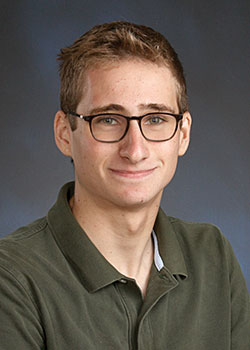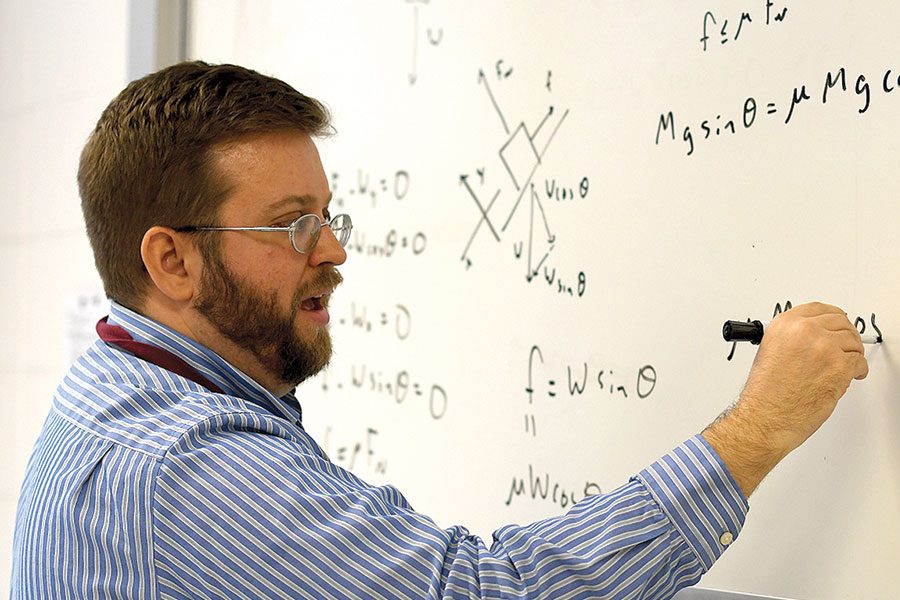Curriculum feedback system to launch this semester
Isabella Kellermeier
PHYSICS AND FEEDBACK. Physics teacher Matt Martino instructs an AT Physics I class. Students in his classes as well as other departments will soon have the opportunity to give input on class structure, teaching styles and curriculum.
November 7, 2019
Beginning this semester, a new feedback system will provide students the chance to give feedback to teachers and impact the structure of their courses.

The Curriculum Feedback System, a Student Council project nearly five years in the making, will enter a beta phase in December or January.
“Often students are not very candid in their feedback because teachers know their handwriting, or they don’t want it to reflect badly on them, so Student Council is really working to make it completely anonymous,” All-School President Ben Cifu said.
Initially, the system was intended for students to have more information about offered classes prior to registration. According to English department chair Mark Krewatch, who has advised various students as they developed the system for several years, said that “there were concerns by teachers about the public nature of it and how honest the feedback would be.”
Instead, it will be completely anonymous and teachers will have access to the student responses from their section. This allows feedback to be genuine and targeted for each class.
“We want to make sure that faculty know what students think about the class, and we’re working to rebuild trust anywhere we can,” Ben said.
Ben emphasized that it will happen at the end of the first semester so that feedback can be implemented for the rest of the year.
“A lot of teachers collect feedback, but we want this to be a standardized system so every teacher can get feedback pretty easily,” Ben said. “There will be a set bank of questions that students can know and think about throughout the year.”
He estimates that there will be 20 questions for students to respond to, but there will be slight variations depending on the subject, so they will be applicable for every course.
Ben said Student Council members also hope to be able to find trends in the feedback that can inform “what discussions can be had between students, faculty, and administration about where we want classes to go.”































































